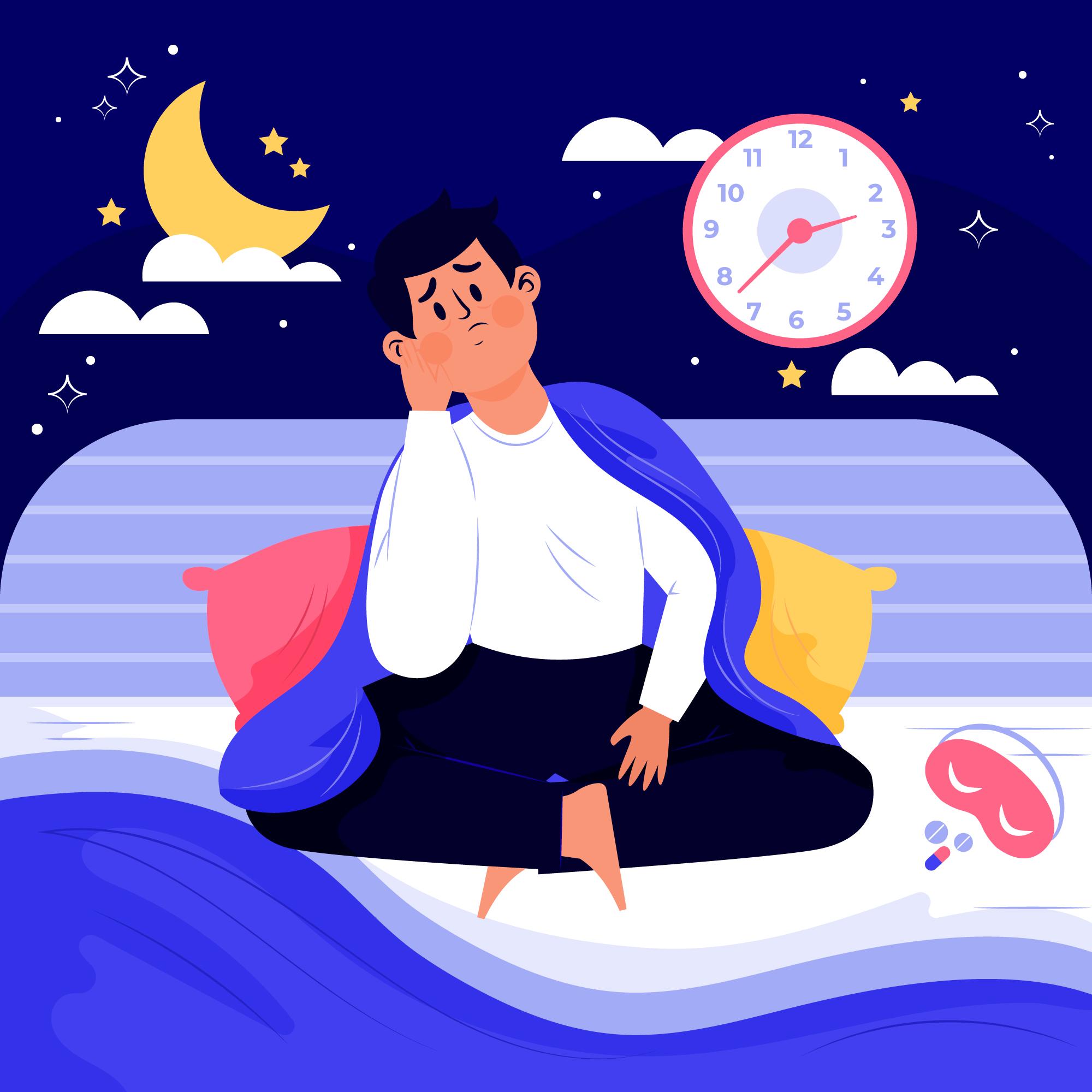Insomnia Disorder
Overview
Insomnia Disorder is characterized by persistent difficulties in initiating or maintaining sleep, leading to significant daytime impairment or distress. In India, the prevalence of insomnia varies, with studies indicating rates between 13.8% and 33.0%. This variation is influenced by factors such as age, gender, and comorbid health conditions.
Key Facts
- Prevalence: A systematic review reported a pooled insomnia prevalence of 25.7% in the Indian population.
- Gender Differences: Insomnia affects 41% of women and 32% of men in India, suggesting a higher prevalence among females.
- Age Factor: Older adults, especially those attending primary care services, exhibit higher rates of insomnia, with studies reporting prevalence rates between 42% and 57% in this group.
Symptoms and Patterns
Individuals with insomnia may experience:
- Difficulty Initiating Sleep: Trouble falling asleep at the desired time.
- Difficulty Maintaining Sleep: Frequent awakenings during the night or early morning awakenings with an inability to return to sleep.
- Daytime Impairments: Fatigue, mood disturbances, decreased cognitive function, and impaired social or occupational performance.
Risk and Protective Factors
Risk Factors:
- Psychiatric Disorders: A significant association exists between insomnia and psychiatric conditions, with 78.2% of individuals with psychiatric disorders reporting insomnia symptoms.
- Chronic Health Conditions: Conditions such as diabetes and heart disease are linked to higher insomnia prevalence.
- Sociodemographic Factors: Female gender, older age, widowhood, and lower economic status are associated with increased insomnia risk.
Protective Factors:
- Healthy Sleep Hygiene: Maintaining a consistent sleep schedule, creating a restful environment, and limiting exposure to screens before bedtime can promote better sleep.
- Stress Management: Engaging in relaxation techniques, such as mindfulness and meditation, can reduce stress-related sleep disturbances.
Treatment and Care
Management of insomnia in India encompasses both pharmacological and non-pharmacological approaches:
- Medications: Short-term use of prescription medications, such as benzodiazepines and hypnotics, may be considered. However, these should be used cautiously due to potential dependency and side effects.
- Addressing Underlying Conditions: Treating coexisting mental health disorders, like anxiety and depression, can alleviate insomnia symptoms.
Psychological and Psychosocial Interventions
- Cognitive Behavioural Therapy for Insomnia (CBT-I): Recognized as the first-line non-pharmacological treatment, CBT-I addresses negative thoughts and behaviours contributing to insomnia. It has demonstrated effectiveness in improving sleep quality and reducing daytime impairments.
- Behavioural Interventions: Techniques such as relaxation training, stimulus control therapy, and sleep restriction therapy are effective components of insomnia treatment.
Conclusion
Insomnia Disorder significantly impacts the well-being of many individuals in India. Given its association with various psychiatric and medical conditions, a comprehensive approach that includes psychological interventions, lifestyle modifications, and, when necessary, pharmacological treatments is essential. Enhancing awareness and accessibility to effective therapies can improve sleep health and overall quality of life in the Indian population.


